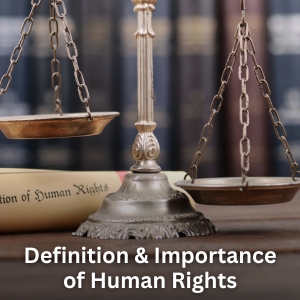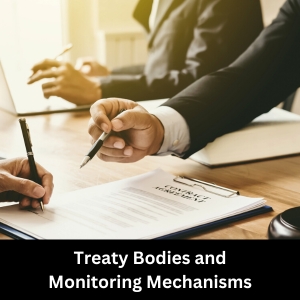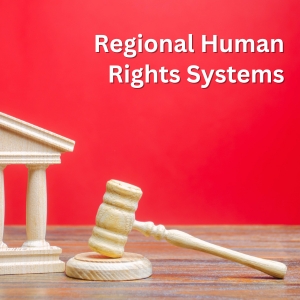Announcement
We are excited to announce the Indus Hackathon 2025, an exhilarating one-day event organized by the CSE Department of Indus University....Read more We are excited to announce the Indus Hackathon 2025, an exhilarating one-day event organized by the CSE Department of Indus University.
26th ISTE Faculty Annual State Convention will be held at Indus University on April 27, 2023....Read more 26th ISTE Faculty Annual State Convention will be held at Indus University on April 27, 2023.
26th ISTE GUJARAT STATE ANNUAL FACULTY CONVENTION & CONFERENCE ON APRIL 27,2023. MORE DETAILS WILL BE SHARED SOON....Read more 26th ISTE GUJARAT STATE ANNUAL FACULTY CONVENTION & CONFERENCE ON APRIL 27,2023. MORE DETAILS WILL BE SHARED SOON.
We are excited to announce the Indus Hackathon 2025, an exhilarating one-day event organized by the CSE Department of Indus University....Read more We are excited to announce the Indus Hackathon 2025, an exhilarating one-day event organized by the CSE Department of Indus University.
26th ISTE Faculty Annual State Convention will be held at Indus University on April 27, 2023....Read more 26th ISTE Faculty Annual State Convention will be held at Indus University on April 27, 2023.
26th ISTE GUJARAT STATE ANNUAL FACULTY CONVENTION & CONFERENCE ON APRIL 27,2023. MORE DETAILS WILL BE SHARED SOON....Read more 26th ISTE GUJARAT STATE ANNUAL FACULTY CONVENTION & CONFERENCE ON APRIL 27,2023. MORE DETAILS WILL BE SHARED SOON.

Protecting and promoting human rights is fundamental to ensuring dignity, equality, and justice for all individuals across the globe. To effectively safeguard these rights, a robust legal framework is necessary. This article aims to provide an overview of the legal framework that exists at the international level to protect and promote human rights worldwide.
Human rights are fundamental entitlements and protections that every individual possesses by virtue of being human. They encompass a range of inherent rights and freedoms essential for individuals to live with dignity and equality. Human rights serve as a moral and legal compass, providing a foundation for a just and equitable society. They establish the principles of fairness, non-discrimination, and respect for the inherent worth of every person, regardless of their race, gender, religion, nationality, or any other characteristic. By recognizing and upholding human rights, societies can strive to create an environment where individuals can flourish and live meaningful lives free from oppression and injustice.

The international community has developed a comprehensive framework of human rights instruments to protect and promote the rights of individuals worldwide. Among the most significant instruments are the Universal Declaration of Human Rights (UDHR), the International Covenant on Civil and Political Rights (ICCPR), and the International Covenant on Economic, Social, and Cultural Rights (ICESCR). These documents outline the fundamental rights and freedoms that should be universally protected.
These international human rights instruments play a crucial role in establishing legal obligations for states. They outline the responsibilities of governments to respect, protect, and fulfil the human rights of their citizens. States that have ratified these treaties are legally bound to uphold human rights within their territories. The instruments provide a common standard against which the conduct of governments can be evaluated, allowing for accountability and advocacy when human rights violations occur.

The United Nations has established various treaty bodies and specialized agencies to ensure compliance with international human rights standards. These bodies are responsible for monitoring the implementation of human rights treaties and assessing the progress made by states in fulfilling their obligations.
Treaty bodies, such as the Human Rights Committee, the Committee on Economic, Social and Cultural Rights, and the Committee on the Elimination of Discrimination against Women, review state reports submitted by governments. They examine the measures taken to implement human rights obligations and make recommendations for improvement. Additionally, these bodies can receive individual complaints, conduct inquiries, and issue decisions that guide states in addressing human rights violations.
Specialized agencies, such as the Office of the United Nations High Commissioner for Human Rights (OHCHR), support the work of treaty bodies and promote human rights through research, capacity-building, and advocacy. They are crucial in raising awareness about human rights issues, providing technical assistance to states, and facilitating stakeholder dialogue.
The treaty bodies and monitoring mechanisms create a system of checks and balances that help ensure accountability and promote the realization of human rights worldwide. They provide a platform for individuals, civil society organizations, and governments to dialogue, share best practices, and address human rights challenges collaboratively.
Overall, the legal framework for protecting and promoting human rights at the international level is critical for upholding the principles of equality, justice, and human dignity. Through international human rights instruments, treaty bodies, and monitoring mechanisms, efforts are made to safeguard the rights of individuals, hold states accountable for their actions, and strive for a world where human rights are universally respected and protected.
In addition to the global framework, regional human rights systems have been established to address specific regional challenges and promote human rights at a local level. These systems include the European Convention on Human Rights (ECHR) in Europe, the African Charter on Human and Peoples' Rights in Africa, and the Inter-American Commission on Human Rights in the Americas. These regional mechanisms complement and reinforce the global human rights framework.
The European Convention on Human Rights (ECHR) is a landmark treaty that sets out a comprehensive range of civil, political, economic, social, and cultural rights for individuals within Europe. It established the European Court of Human Rights, which hears cases alleging violations of the Convention by member states. The ECHR has been instrumental in shaping human rights jurisprudence and promoting accountability in Europe.

The African Charter on Human and Peoples' Rights is a regional human rights instrument that specifically addresses the context and challenges African countries face. It emphasizes collective rights, such as the right to development, and places importance on the responsibilities of individuals to society. The African Commission on Human and Peoples' Rights is responsible for monitoring and promoting the implementation of the Charter, ensuring that human rights are protected and respected across the continent.
The Inter-American Commission on Human Rights (IACHR) and the Inter-American Court of Human Rights (IACtHR) are critical to promoting and defending human rights in the Americas. After receiving and studying allegations of human rights abuses, the Commission evaluates them and provides recommendations to member nations. The Court hears cases submitted by the Commission and generates authoritative interpretations of regional human rights norms.
These regional systems are designed to complement and reinforce the global human rights framework established by the United Nations. They provide specialized attention to regional challenges and promote regional cooperation in protecting and promoting human rights. By addressing specific regional contexts and issues, they enhance the effectiveness and relevance of human rights protections.

National implementation and enforcement are key components of human rights protection and advancement. Domestic legislation and institutions provide the platform for transforming international and regional human rights norms into actual national actions and remedies. National human rights groups, tribunals, and legislative frameworks are essential in protecting human rights within a country's borders.
Courts also play a significant role in enforcing human rights. National judicial systems interpret and apply human rights laws, providing redress and remedies for individuals whose rights have been violated. Adherence to the principles of independence, impartiality, and accessibility is essential for the effective functioning of national courts in protecting human rights.
While significant progress has been made in advancing human rights, numerous challenges persist. Lack of political will, resource constraints, and cultural barriers often hinder the effective implementation of human rights frameworks. Political considerations and competing priorities can lead to the neglect of human rights issues. Insufficient education, health, and social welfare resources can impede achieving economic and social rights. Cultural norms and practices may clash with universal human rights principles, necessitating ongoing efforts to promote dialogue, understanding, and cultural sensitivity.
However, there are inspiring examples of progress and success stories in protecting and promoting human rights. Countries have implemented legal reforms, established human rights institutions, and improved access to justice. Grassroots movements and civil society organizations have played a crucial role in advocating for human rights and driving positive change.
In conclusion, the legal framework for protecting and promoting human rights worldwide plays a crucial role in ensuring the well-being and dignity of every individual. Through international human rights instruments, monitoring mechanisms, regional systems, and national implementation efforts, progress is being made in advancing human rights globally. However, challenges persist, necessitating ongoing commitment and collaboration to strengthen this framework and create a world where human rights are universally respected and upheld.
